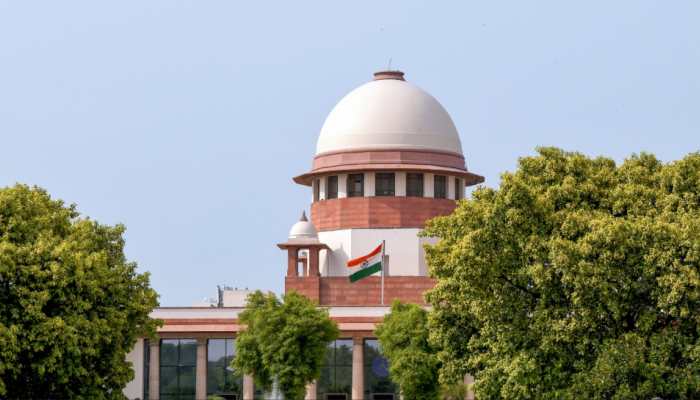Mumbai Train Blasts: Supreme Court Stays Bombay HC Acquittal, But Says 'No Re-Arrest' For Accused
7/11 Mumbai Bomb Blast: Appearing for the State, Solicitor General Tushar Mehta informed the bench, comprising Justices MM Sundresh and NK Singh, that he was not seeking an order for the re-arrest or surrender of the released accused.
Trending Photos
) File Photo (ANI)
File Photo (ANI) New Delhi: The Supreme Court, on Thursday, stayed the Bombay High Court’s judgment that acquitted all 12 men in the 2006 Mumbai train blasts case. The stay came in response to the Maharashtra government’s concerns that the High Court’s ruling could negatively influence several ongoing trials under the Maharashtra Control of Organised Crime Act (MCOCA).
While granting the stay, the apex court made it clear that the 12 accused, who were released earlier this week after their acquittal, would not be sent back to prison.
A bench of Justices MM Sundresh and N Kotiswar Singh also issued notices to the 12 acquitted men, asking them to respond to the state’s appeal against their acquittal. “We are inclined to hold that the impugned judgment shall not be treated as a precedent. Therefore, there will be a stay of the impugned judgment,” the bench stated in its brief order.
Solicitor General Tushar Mehta, representing the Maharashtra government, clarified that the state was not seeking to revoke the release of the accused. Instead, he asked for the judgment itself to be stayed, citing the potential impact of the High Court’s findings on other pending MCOCA trials.
“I am conscious of the matter of liberty. I am not seeking a stay on their release. But we want the judgment to be stayed because there are certain findings by the High Court which may affect other pending MCOCA trials. Thus, the impugned judgment needs to be stayed,” Mehta submitted.
Accepting this argument, the court ordered that the High Court's decision would carry no precedential weight until further notice.
The Supreme Court’s intervention follows the Maharashtra government’s prompt appeal against the Bombay High Court’s July 21 judgment, which overturned the 2015 convictions handed down by a special MCOCA court. That lower court had sentenced five of the accused to death and the remaining seven to life imprisonment.
In its ruling, the High Court had sharply criticized the prosecution, stating that it had “utterly failed to establish the offence beyond a reasonable doubt.” The court also pointed to multiple procedural lapses, unreliable evidence, and serious violations of the accused’s constitutional rights during the investigation.
The 2006 Mumbai train bombings remain one of the deadliest terror attacks in India’s history. On the evening of July 11, seven pressure cooker bombs exploded within six minutes across first-class compartments of packed suburban trains, killing 188 people and injuring 829.
The Maharashtra Anti-Terrorism Squad (ATS), which led the investigation, arrested 13 men within four months. The ATS alleged that the attacks were planned by former members of the banned Students’ Islamic Movement of India (SIMI), with support from the Pakistan-based Lashkar-e-Taiba (LeT). It also claimed that 12 Pakistani nationals had entered India to assist in training and providing explosives.
However, the High Court ultimately found that these allegations did not hold up under legal scrutiny, leading to the complete acquittal of the 12 accused.
Stay informed on all the latest news, real-time breaking news updates, and follow all the important headlines in india news and world News on Zee News.
Live Tv



)
)
)
)
)
)
)
)
)
)
)
)
)
)
